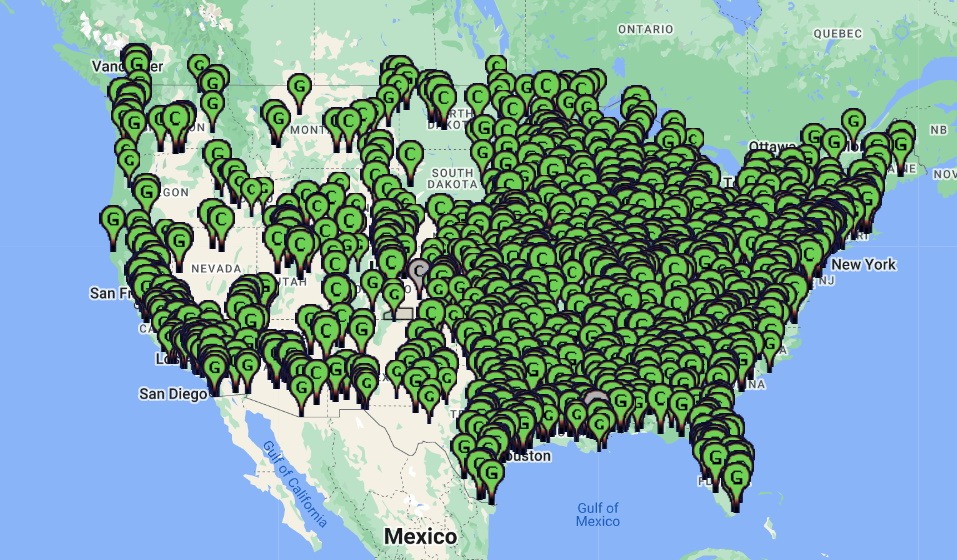Tag: Massachusetts
-
$355,375 Grant to Install Biomass Heating in Massachusetts Elementary Schools
– Massachusetts Executive Office of Energy and Environmental Affairs, May 5, 2015, Biomass Magazine The administration of Massachusetts Gov. Charlie Baker and Lt. Gov. Karyn Polito has announced grant funding for Heath Elementary School in Heath and the Hawlemont Elementary School in Charlemont to convert to highly efficient biomass boilers from their existing oil heating systems.…
-
Springfield, MA Mayor Blocks Appeal Against Biomass Incinerator
– by Paul Tuthill, September 12, 2014, WAMC The mayor of Springfield, Massachusetts won’t authorize an appeal to block construction of a wood-burning power plant. A spokesman for Mayor Domenic Sarno said the mayor will not approve funds to appeal a court ruling that ordered the city to reinstate the building permit for the biomass project. …
-
Springfield, MA City Council Votes to Appeal Biomass Permit Ruling
– by Ryan Trowbridge, September 10, 2014, WGGB Wednesday night, the Springfield City Council took up the contentious issue of a planned biomass incinerator in the city. Opponents claim the plant would only add more pollution to an already polluted city, but the state just ruled Springfield does not have the authority to stop its development.…
-
Stalled Springfield, MA Biomass Incinerator Gets Building Permit
– by Michaelann Bewsee, August 21, 2014, Arise for Social Justice Funny how bad news can make you want to fight even harder for justice. Remember the community’s fight to keep a biomass plant out of Springfield? Yesterday we found out that the Land Court granted Palmer Renewable Energy’s request to reinstate their building permit, undoing…
-
Springfield, MA Biomass Incinerator Permit Reinstated
– by Suzanne McLaughlin, August 20, 2014, MassLive Massachusetts Land Court has granted Palmer Renewable Energy’s request to reinstate its building permit for a biomass wood-burning plant in East Springfield, undoing the Springfield Zoning Board of Appeals’ decision that the building permit was invalid. The decision states that no special permit is needed and the building…
-
Massachusetts Grants Millions to Biomass Industry
[Millions of taxpayer dollars go to polluting biomass incineration under the guise of “clean” energy. -Ed.] – by Anna Simet, June 5, 2014, Biomass Magazine Massachusetts has dedicated $3.5 million to nine renewable thermal projects in the state through a new grant program, the Massachusetts Renewable Thermal Business Investment Financing Program. Funds for the program are…
-
Group Descries Logging in Northampton, MA Watershed
– by Rebecca Everett, March 17, 2014. Source: Daily Hampshire Gazette Chris Matera of Northampton said he was driving through Whately to go skiing two weeks ago when he noticed piles of fresh-cut logs at the mouth of a trail into a forest. “I said, ‘Wait, isn’t that the watershed?,’” he recalled recently. Matera, who heads…
-
New Law Will Make Biomass Heating Cheaper in Massachusetts
– by Shira Schoenberg, December 1, 2014, Mass Live A new law that goes into effect in January will make it cheaper to use renewable energy to heat a home – and could provide a boost to the wood industry in rural parts of Western Massachusetts. “This is going to help (renewable) technologies compete with and…
EJ Communities Map

We are mapping all of the existing, proposed, closed and defeated dirty energy and waste facilities in the US. We are building a network of community groups to fight the facilities and the corporations behind them.
Related Projects
ActionPA
EJnet
Corporations
Race & Class Census Map
